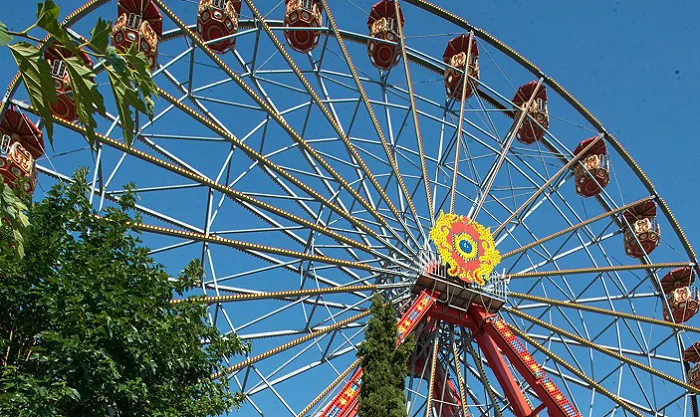NEW YORK (AP) — As global trade tensions ripple through the economy, smaller regional amusement parks face the challenge of maintaining strong summer attendance amid rising costs and consumer caution. While families increasingly opt for local parks within driving distance over major destinations like Disney World, the impact of tariffs on imported materials and prizes threatens to raise expenses and influence visitor spending.
Tariffs on imported steel and goods from China have raised operational costs for many parks. Ride components often rely on imported steel subject to tariffs, while prizes such as stuffed animals and game toys frequently come from China, where tariffs have fluctuated significantly this year.
Despite these pressures, some parks report steady visitor turnout. Brian Hartley, vice president of Playland’s Castaway Cove in Ocean City, New Jersey, noted that attendance remains strong, with good weather encouraging families to visit the park’s 30 rides and other attractions. Visitors like Chris Del Borrello, who returned with his family, emphasize the importance of building lasting memories during summer outings.
The broader tourism industry anticipates a rebound to near pre-pandemic levels, with the U.S. Travel Association projecting 1.96 billion trips this year, a 2% increase from last year, along with rising travel spending.
However, tariff volatility complicates summer planning. The Trump administration’s shifting tariffs on Chinese goods—ranging from 10% to as high as 145%, then settling at 55%—have created uncertainty. Playland’s Castaway Cove responded by stockpiling inventory early in the year, benefiting from tariff reductions in May. “We loaded up,” Hartley said, describing a surplus of prizes and supplies ready for the season.
Not all parks have been so fortunate. Adventureland in Farmingdale, New York, faced additional tariff costs on new ride components and prizes arriving after tariffs took effect. Manager Jeanine Gentile confirmed the park absorbed these extra expenses without increasing ticket prices for now but left open the possibility of future price adjustments.
Economic uncertainty presents an even greater concern for many parks. Dollywood in Pigeon Forge, Tennessee, delayed its opening by a week due to economic concerns but has since seen a 4% increase in attendance. Customers are increasingly seeking discounts and tend to purchase tickets closer to their visits, reflecting cautious spending habits.
Similarly, Silver Dollar City near Branson, Missouri, attracts families from the central U.S. who are budgeting carefully amid inflation and financial pressures. Park president Brad Thomas noted visitors are “carving the money” allocated for their visit into their overall budgets.
While smaller parks have so far weathered the challenges, ongoing economic uncertainty could alter consumer behavior as the summer progresses. Hartley expressed concern that undecided visitors may shorten trips or forego weekend visits altogether as they navigate an unpredictable financial landscape.
As tariffs and economic headwinds continue to cast shadows, regional amusement parks remain hopeful that families will choose local escapes to make the most of their summer leisure time.


